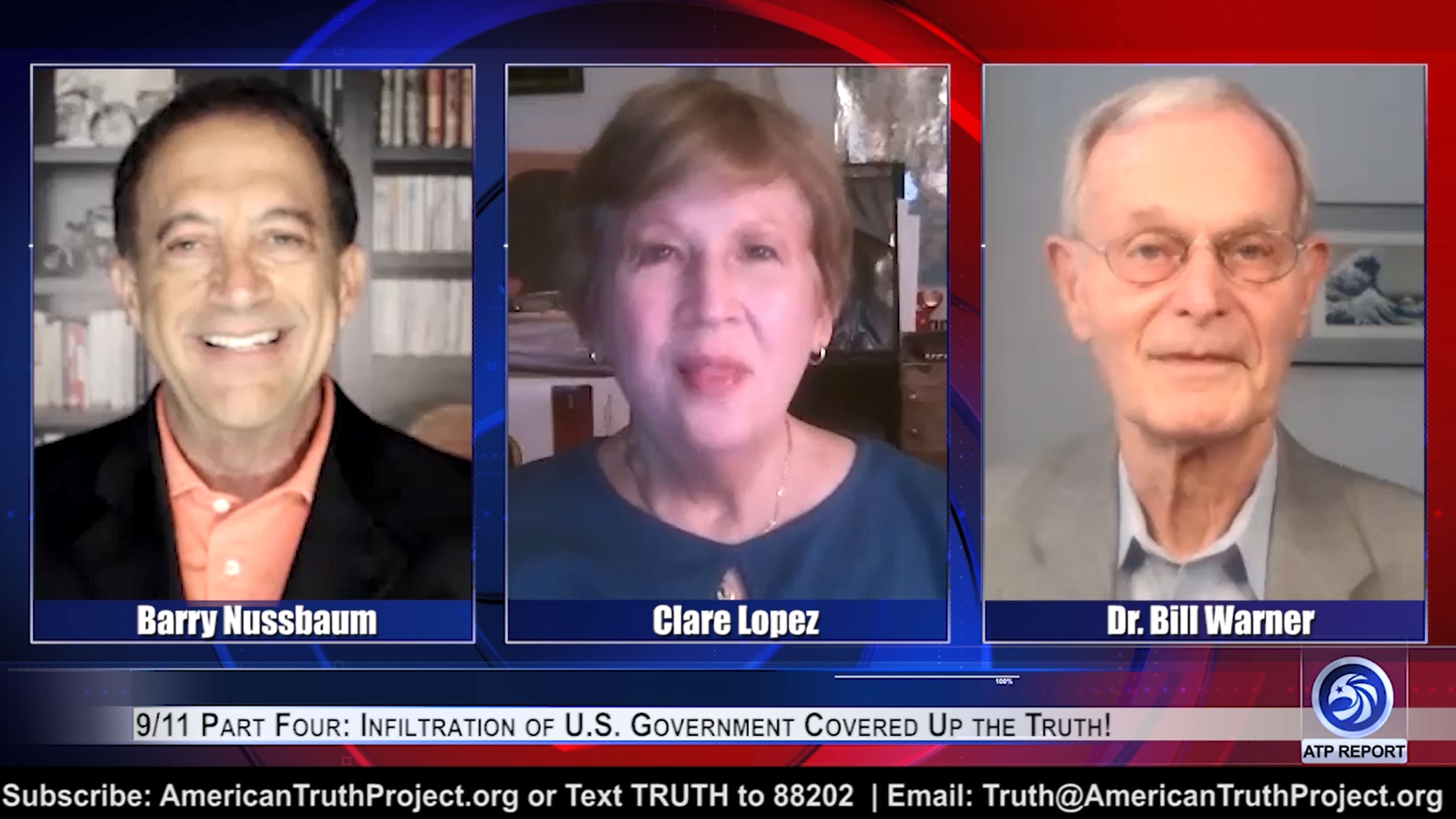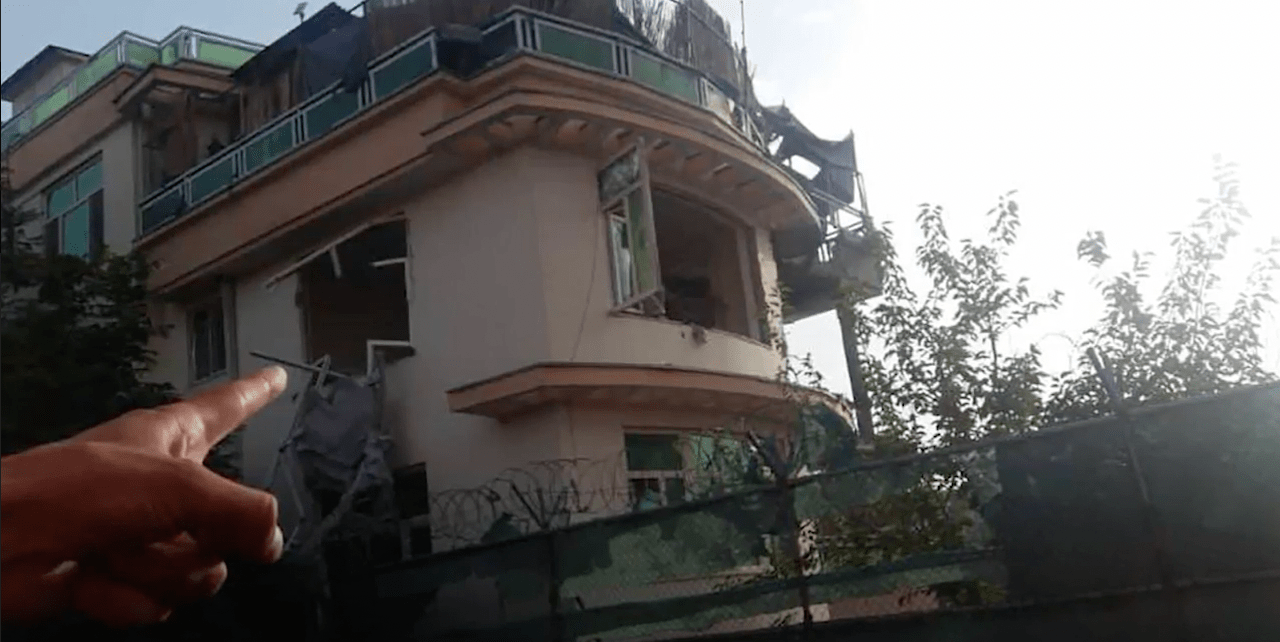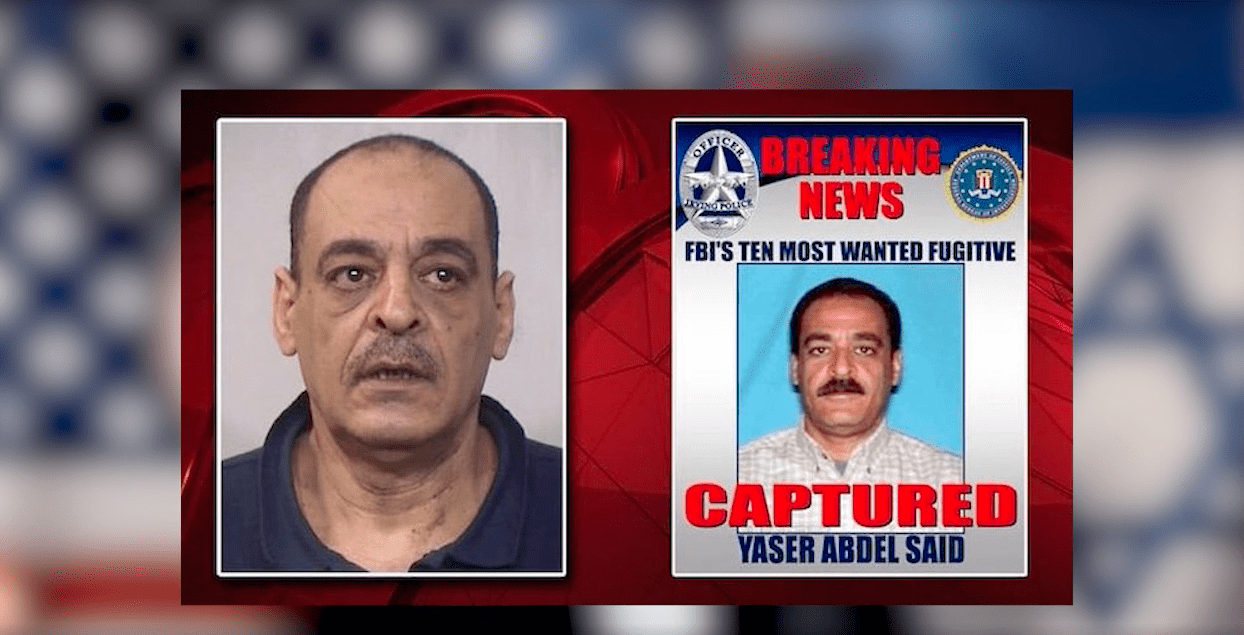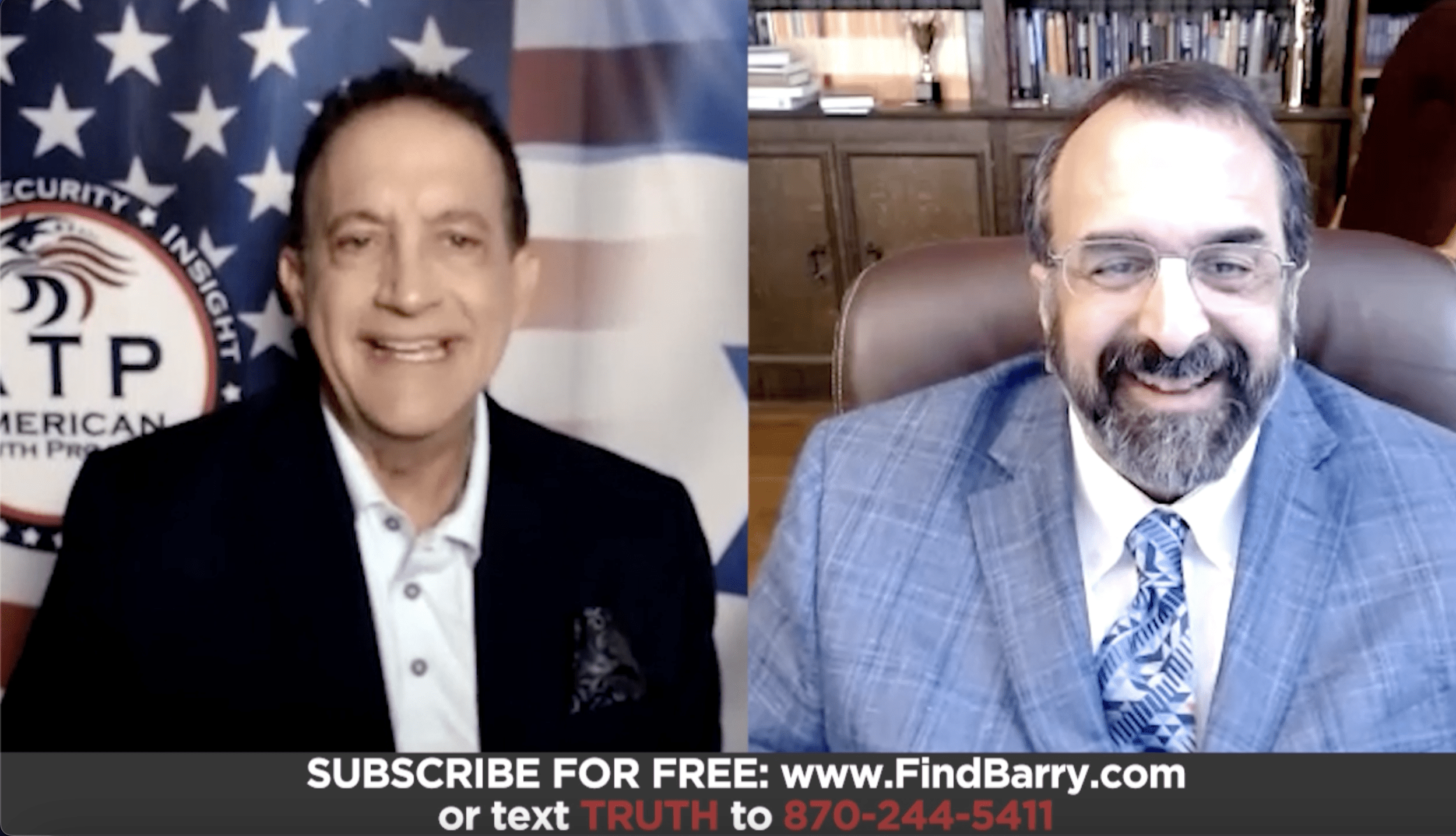Radical Islam
9/11 Part Four: Infiltration of U S Government Covered Up the Truth!

Barry Nussbaum: Hello. Welcome to the ATP Report on this very special anniversary week of 9/11. We have two very special expert guests I’m very honored to introduce to you today. First, Clare Lopez is an internationally recognized expert on terrorism. She’s a writer and a frequent expert commentator on that subject. An extensive background representing the United States around the world, especially being overseas with the CIA.
Our second terrific guest is Dr. Bill Warner. He’s a former college professor, a prolific writer, and the creator of The Theory of Political Islam. Welcome, Clare, and welcome, Bill.
Clare Lopez: Thank you, Barry.
Dr. Bill Warner: Thank You.
Barry Nussbaum: Bill, you have a new video about the importance of language and correct terminology, correct?
Dr. Bill Warner: Yes.
Barry Nussbaum: Why do we say radical Islam or jihadi Islam? Is that PR?
Dr. Bill Warner: When you say radical Islam, you’re using a political science word. What I say is that the language to describe Islam should come from Islam. The most important word we need to add to our language is Kafir, the unbeliever. I did a counting in the Quran, in Arabic, of all the uses of the word kafir, and there were some 400 uses of the word kafir. In those 345 times, kafir means that who is despised.
Therefore, we need to understand if we’re dealing with Zuhdi Jasser, for instance, that I am a kafir in his eyes. When you see what a kafir is filthy, hated, lower than an animal, can be enslaved, raped, imprisoned, tortured. We understand that in the eyes of Islam, we are all kafir’s. It changes how we see Islam, and it changes how we see Muslims because standing behind this is the fact that there are 13 verses in the Koran that say that a Muslim is never the true friend of a kafir.
So, we need to start using the right words. We need to use words like Medina and Islam, which refers to jihad Islam. Look, all I’m saying is they have their all their own words for this. Why can’t we use them? Because when we use them, we get an understanding of the real truth of Islam. So, therefore, I argue that we need to use the right words. Because of fuzzy thinking, let me give an example, people talk about Islamists.
What is Islam? Islam is the doctrine found in the Koran, Surah, and the Hadith. So, an Islamist is one who believes in the Koran. Surah, the Hadith. We just said it is a Muslim. That’s all he is. So, the words that we use need to contain real weight. They need to have a real basis, not from sociology, not from political science, but from Islam. Is this such a radical idea?
Barry Nussbaum: Let me hit you both with a really important question, and then Clare, you kick it off on the answer. So, going back to 9/11. Those 19 hijackers that literally changed the world forever. Were those radical Islamists, were they jihadis or were they just Muslims following their holy books’ commandments?
Clare Lopez: You know, turn this around. Would we ever in our wildest imagination call Christians who try to obey the Ten Commandments, do their best, follow the gospels, follow the example of Jesus Christ; or Jews, they try to follow their faith’s teachings and obey actually 613 commandments they have out of the Talmud.
Would we ever dream of calling those radical Christianists, radical extremist Christianist because they follow their faith? Would we ever, in a crazy imagination, call them radical extremists, what, Jewists, because they try to obey the commandments of their faith? No, it’s absurd.
So, should it be when we’re talking about devout, faithful practicing Muslims. If they obey and try to obey their faith commandments and, as Bill makes this point so well, often follow the example, emulate the example of their founder, Mohammed. Why would we call that radical or extreme? The definition of those words is a deviation from the norm. But if the norm is obedience to Islam’s commandments, then this is not a deviation from the norm at all. But what I was going to say, also bringing this back to an earlier part of our discussion here. About the language, a perfect segue way, what Bill just said about using the correct words.
Beginning in the period right after 9/11. In the George W. Bush administration and then certainly carrying forward through the administration of President Barack Obama, something occurred that we have taken to calling the Great Purge. The Great Purge began under George W. Bush. What it was, as we’ve mentioned before, is a scrubbing of the language.
Of the official U.S. government language, verbal and written throughout the entire United States government. In that period of time, post 9/11, now coming on 19 years hence. Words like Islam, jihad, caliphate, Sharia were all deemed by the Muslim Brotherhood advisors, that George W. Bush and certainly Barack Obama brought in as advisory teams to every cabinet department.
The Department of State, Department of Defense, Department of Justice, the intelligence community those Muslim Brotherhood advisers said these words were offensive. Take them out. Our government acquiesced and said, “OK, if they’re offensive to you, we will not speak them anymore. We won’t write them.” That is what happened to Dr. Bill and other knowledgeable instructors like Robert Spencer, John Gwendolen, Steve Coughlin, and others, Bill Gawthrop.
They, along with their teachings, their syllabuses, their power points, their presentations, were all purged from the U.S. Government. The Great Purge we call it, and unfortunately, President Trump has not even begun to reverse that situation to this date.
Now, granted, he’s got a few other things on his plate and has ever since he came to office. But this is important, and the Great Purge must be reversed if we are ever to confront the threat of the Islamic movement, as they call it themselves.
Dr. Bill Warner: I absolutely agree.
Barry Nussbaum: Why did we agree to take them all out, Clare, Bill?
Clare Lopez: Because, as we’ve said, the Muslim Brotherhood had infiltrated America, American society and the American government, long before 9/11. We’ll recall, of course, they were founded in Egypt in 1928. They came to the United States, the Muslim Brotherhood came to the United States just after World War II.
We can see a picture of them in the Oval Office with President Dwight D. Eisenhower in 1952. A delegation from Egypt led by the son-in-law of Hassan al-Banna, the founder of the Muslim Brotherhood, Said Ramadhan. That photo, black and white, is in the Eisenhower Oval Office 1952. That’s when they came here.
They’ve had a long head start infiltrating our society and our government, academia, media, faith communities, etc. By the time we get, even to the Clinton administrations of the 1990s and certainly after 9/11 the game was up. The jig was up. They already controlled all of our national security agencies and the leadership of them. As well as places like academia and faith communities and so forth, the workplace society.
But in terms of the government, they were already embedded in the Clinton years deep inside our government. They’ve never been rousted out either as appointees or as advisors, sometimes. They’re still there.
I mean, take the Department of Homeland Security, they are, as they call it, a countering Violent Extremism Advisory Committee. Right? Who’s on that committee? Well, under the Obama administration, the Secretary of Department of Homeland Security was Janet Napolitano. Also, she brought in Imam Mohamed Magid, for example, the Muslim brother, Head of the Adams Center, a Dulles Area Muslim Society Center out near Dulles Airport in Virginia.
To this day, Imam Mohamed Magid leads prayers for the Trump administration at their national prayer days. To this day. This is what I mean. The Great Purge has never been reversed. These influences of the Muslim Brotherhood or the Islamic movement, that’s what they call themselves, have never been rooted out. To this day.
Barry Nussbaum: Thousands died. The world changed forever, and I don’t just mean going through the airport where it used to be 10 minutes, and now it’s two and a half hours. But literally, the world changed and all over the world because of what happened 19 years ago this week. What is the one thing each of you would identify as the biggest change in the world because of 9/11? Bill, you go first.
Dr. Bill Warner: Well, I have an odd suggestion. Something that has happened, there’s been an unseen revolution that has happened in the intellectual world. After 9/11, a lot of scholars put themselves to work to make the doctrine of Islam clear and easily understandable for anybody. Anybody who wants to can now understand the doctrine of Islam.
We have an entire grassroots organization that has put this together. This will have long term effects, which we cannot measure. So, I have a degree of optimism here. For the first time in human history, it is now possible for anybody to understand the doctrine of Islam if they really want to. This will have long term effects, which we cannot anticipate now. So that’s my note of optimism, the change that’s unspoken and unnoticed.
Barry Nussbaum: I love it because the best counter to any movement is education. If you don’t know what’s coming and you don’t know where it’s coming from, and you don’t know why it’s coming at you, you’re a victim. If you’re proactive and understand it, you can prepare, defend, and be ready to make things better or at least enhance your survival. Clare, what would your takeaway from 9/11 be? How did the world change?
Clare Lopez: I would agree completely with what Bill just said and maybe take another step onward from that. Bin Laden and al-Qaida, and the others did achieve what they set out to do, which was to rouse up Islam’s forces since the days of colonialism that had been at least somewhat suppressed. But that then gave the world the opportunity to see once again what Islam really is about.
Al-Qaida, Boko Haram, all of these groups, Hamas, Hezbollah, Taliban, et cetera, gave the modern world in an age of instantaneous communication and the internet the ability, just as Bill is saying, not just through those who now teach it, explain it, write and speak about it, but through the actions of these Islamic jihad groups themselves to see what horrors they inflict on the world with jihad and their intent to conquer and subjugate.
Barry Nussbaum: Well, I appreciate both of your optimistic, educationally minded takeaways. It makes me feel a little better, especially on such a somber week as we are now experiencing. I want to thank both of you for coming on today. In light of the fact that America will remember our dead and how the world changed 19 years ago, Bill, tell people how they can find out about you and what you do, would you please?
Dr. Bill Warner: I have a website called Political Islam.com. You can see my videos, newsletters, books, the whole nine yards. By the way, I don’t sell books. I sell educational systems designed for you to educate yourself so that you, too, can know what Mohammed said and did and understand the mind of Allah.
Barry Nussbaum: Excellent. How about you, Clare, where can people find you?
Clare Lopez: Well, I don’t yet have a website, but you can find much of my writing, videos, and other presentations online at a couple of different websites. One is at TheUnitedWest.com and its partner, ShariaCrimestoppers.com. I’m also posted at the Citizen’s Commission on National Security. Many of my presentations are cross posted with Brandon Howse at WorldViewWeekend.com. I am online on social media at Clare M Lopez, on Twitter, on Parley, and Facebook. Eventually, I hope to have a website.
Barry Nussbaum: Both of you are on AmericanTruthProject.org, and we’re very happy to have you. For those viewers that have not yet subscribed to our text message alert system. Type the word TRUTH and send it to 88202 or you can go to our website at AmericanTruthProject.org and sign up to be on our mailing list. For ATP Report, thanks for joining us today. I’m Barry Nussbaum.











